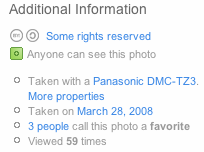Two very recent articles* mention card sorting as a technique for getting library web site users to determine categories of information. The process typically uses index cards that already have some information provided, and the user puts the cards into piles that make sense to them. Then the user gives piles headings. This is a technique for getting users to help you think about how to construct the categories of information on your website.
There’s a web tool for this, if your users prefer using the web to sorting physical index cards: WebSort (http://websort.net) (mentioned in Cassi Pretlow’s article, “10 web tools to create user-friendly sites,” Computers in Libraries, June 2008, 28(6):14.)
You may like to read more on ways to systematically gather data from your users. Consider reading this slim book for essential how-to information: Systematic Data Collection By Susan C. Weller, Antone Kimball Romney.
*
- Peter Hepburn and Krystal M. Lewis. 2008. “What’s in a Name? Using Card Sorting to Evaluate Branding in an Academic Library’s Web Site.,” College & Research Libraries, 69(3).
- 2008. “The secret to patron-centered web design: cheap, easy, and powerful usability techniques,” Computers in Libraries, 28(6):6.





